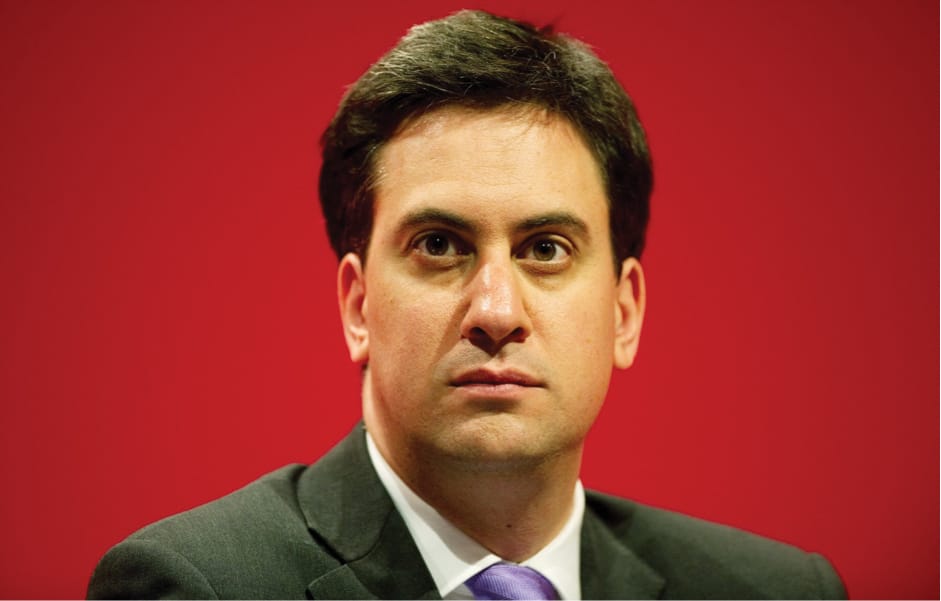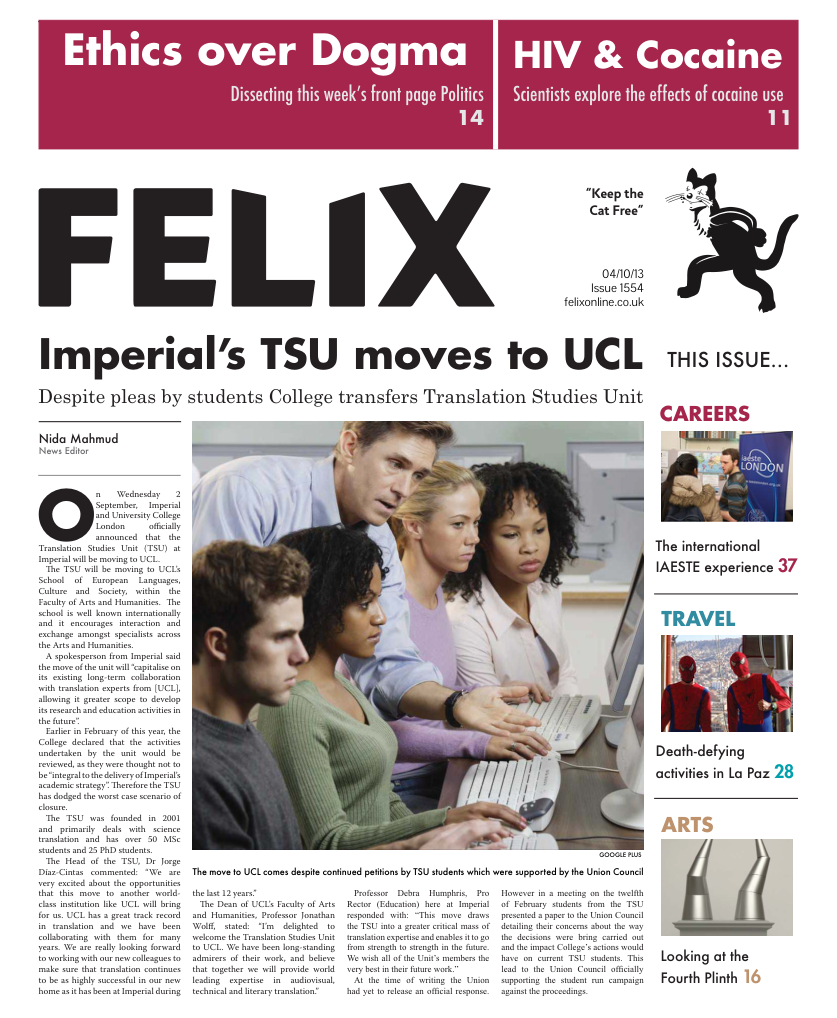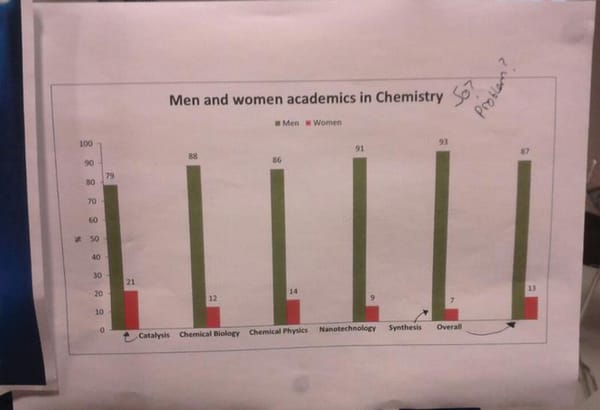Ed Miliband: Ethics Over Dogma?
This article was catalysed by the recent conference of The Conservative Party held in Manchester, where voluminous Government policy was proposed and discussed.

This article was catalysed by the recent conference of The Conservative Party held in Manchester, where voluminous Government policy was proposed and discussed. The ‘Work for Benefits’ plan proved to be a topic of discussion as Chancellor, George Osborne, revised the criteria for Jobseeker’s Allowance Qualification. His proposals (in relation to long-term unemployed British citizens) were threefold. First off, he intends to galvanise candidates towards work placements, including roles such as “cleaning up litter”. Secondly, provided that this measure failed to be embellished and augmented, daily Job Centre visits would become compulsory. The final proposal encompassed participation in compulsory skills training. To cite George Osborne, “There is no option of doing nothing for your benefits, no something-for-nothing anymore.” “They will do useful work to put something back into their community; making meals for the elderly, cleaning up litter…and for those with underlying problems, like drug addiction and illiteracy, there will be an intensive regime of support.” To my mind the Chancellor’s comments appeared condescending to the many millions of people beneath the breadline across the UK. While honouring the mantra of The Conservative Party (‘For Hardworking People’) they unilaterally demonise those people receiving benefits. There is no mention of the thousands of overly-qualified denizens (with infinitely many prefixes to their names) who, locked into the benefit system by circumstance, find that there is no place for their skills within a fragile British economy. George Osborne has instead chosen to uniformly denigrate the financially unfortunate, caricaturing them as unskilled and debauched; all because they are dependent upon the State. Where unemployment benefit was once conveyed as a compassionate, humanitarian safety net, it is now misconstrued as a burden to the British taxpayer. Meanwhile the Health Secretary, Jeremy Hunt, addressed the Forty Group (MPs with slender majorities in their constituencies), putting forward a five point plan for ‘routing’ the opposition. To quote Mr. Randeep Ramesh of The Guardian, “The most striking thing was the Tory recasting of Ed Miliband…the message of the labour leader had to shift from him being ‘hopeless to dangerous’ as the public has sympathy for ‘hopeless’ people because they are seen as underdogs.” It could be argued that the meeting’s focus typified the crux of modern Tory politics, where voters are regarded as pawns on a political chessboard. This is evident in context of many initiatives spearheaded by the coalition. David Cameron’s veto of the recent European Treaty, attempts to redact the Human Rights Act, zero-hour contracts, the bedroom tax and the trimming of disability allowance convey to voters that there is always someone beneath them, burdening both themselves and the UK fiscally, even morally. The efficacy of these initiatives can also be called into question. Department for Work & Pensions figures demonstrate a 10% success rate for the 2011 ‘Compulsory Work’ scheme. It is possible that intricate layers of bureaucracy serve as a buffer, preserving the true wealth among the few. By adhering to the party and not to the people, politicians may be perceived to be laying the seeds for a British plutocracy. In my opinion this provides a crucial opening for Labour politics and its leader Ed Miliband. With twenty months to go until the 2015 general election his opinion polls are beginning to gain momentum. Despite many accusations that he is unfit to be the next Prime Minister, he continues to weather the political storm. In spite of this one cannot ignore the severe implications of the Falkirk seat row regarding Labour’s crucial link to trade unions. Allegations that the Unite union recruited upwards of one hundred members in an effort to install Katie Murphy as party candidate resulted in a major rift between Labour and Unite. The comments of union General Secretary, Len McCluskey, cemented the rift. He announced that he was, “obliged to uphold the integrity of Unite and I can no longer do so on the basis of…Labour…in which I can place no trust.” Ed Miliband’s speech at the recent Labour party conference in Brighton also sparked controversy. His pledge to impose two year energy price freezes from 2015 to 2017 kick-started a welcome surge in opinion polls (Labour’s UKPR polling average of 39 with respect to the Tory’s 32). Indeed when commenting to The Guardian the chief executive of Lightsource Renewable Energy, Mick Boyle, commended Ed Miliband’s efforts to rumble the oligopoly of ‘the big six’. “We don’t agree with his price-freezing proposals…but a breakup will see more investment in the UK, not less.” Similar sentiments partially assisted the Labour leader in evading the anti-business label stamped on him by the Government. It proved insufficient to stave off the scepticism he received from many quarters. Many pragmatists, including students of Imperial College London, will be acutely aware of the projected energy surplus of the UK (marginal, less than 2%) by 2015/16. Some may even harbour a grave concern for impending ‘blackouts’. In sum, it is Ed Miliband’s evasion of concrete statistics that may prove to be the fatal wound to his election campaign. On the flip side his ethics, combined with his academic background, may prove to be his saving grace. This was highlighted by the recent slander of Ralph Miliband (prominent Marxist thinker and father to Ed) by The Daily Mail. They released an article entitled “The man who hated Britain”. Ken Livingstone and Alistair Campbell (former Director of Downing Street Communications under Tony Blair) were among the politicians to jump to his defence. Ed Miliband’s anger was plain to see in a televised interview with the BBC. It harmonised with his letter to Labour newsletter subscribers. He stated, “This isn’t about me and my family – this is about doing what’s right.” Ross Hawkins, a BBC political correspondent reported that there was no “sure-fire way of knowing…how many voters share his outrage.” For me, it was good to see some genuine emotion from a politician; if anything, I found it endearing. Recent political developments on the global platform, capped by the shutdown of the US Government, prove that politics is a delineated and complex collection of catacombs where an individual is hard pushed to adhere to his or her fundamental principles. This is an accepted reality and one that fuelled Ralph Miliband’s pioneering 1972 work ‘Parliamentary Socialism’. He believed that Labour was rendered ineffective by the confines of Government, forced to adopt increasingly empirical politics. Ed Miliband, differing from his father by moving towards the centre left, accepts this empiricism as a good thing. Time has told us that an individual entering politics will always succumb to compromise and, ultimately, disrepute. If Ed Miliband can continue to reveal his ethics at a distance from politics and display genuine concern for the needs of the UK electorate, Labour opinion polls may further surge.







